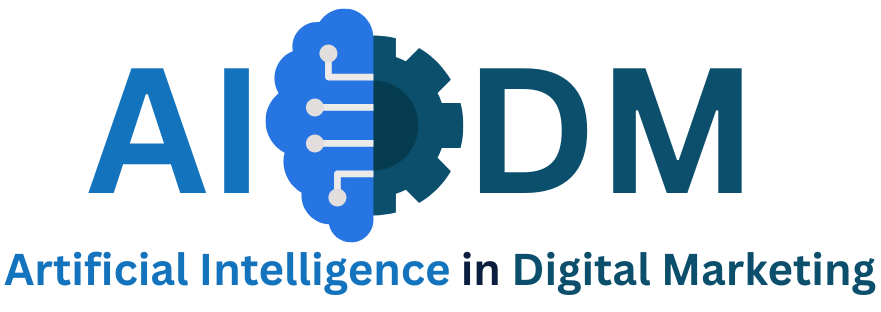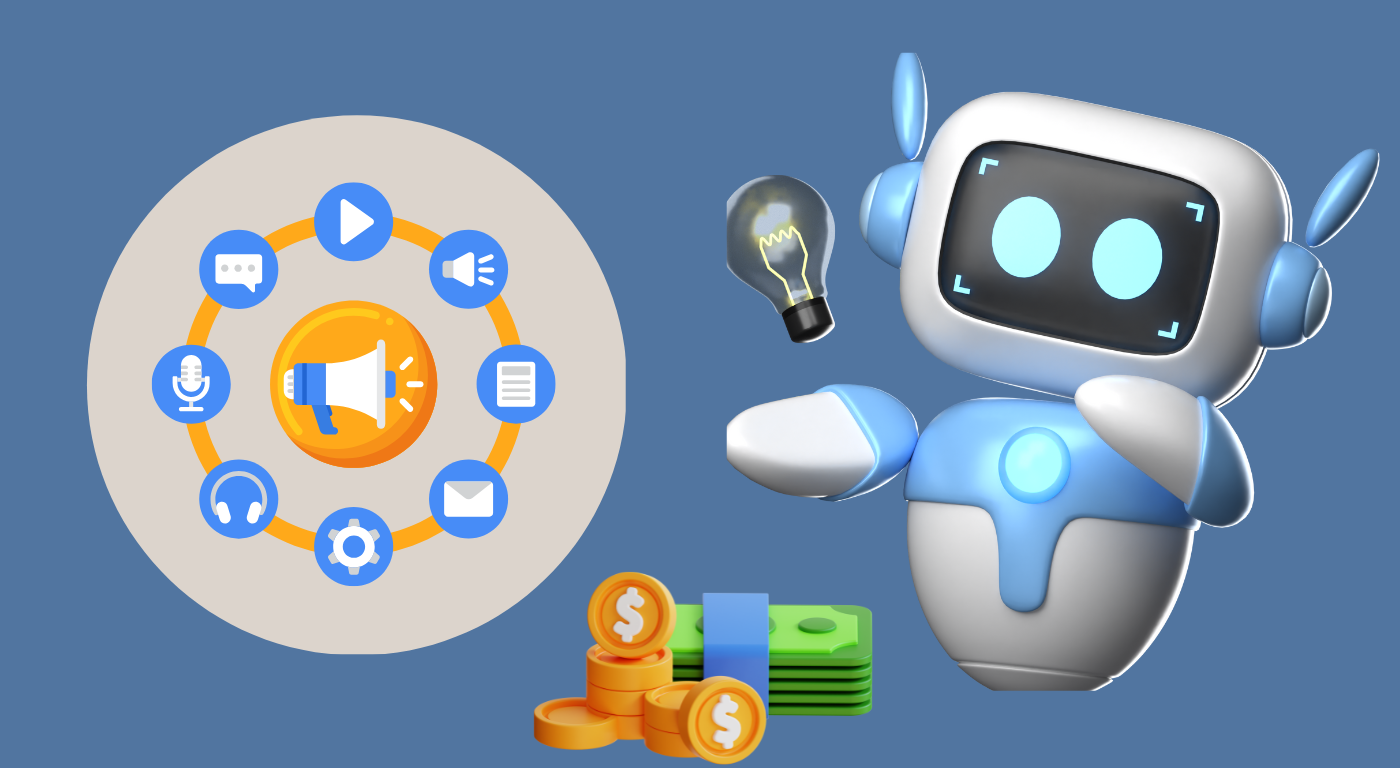Integration of AI into digital marketing has become less of a luxury and more of a necessity for businesses to stay competitive in 2025. However, one of the most pressing questions business decision maker face is: “How much should we actually spend on AI marketing tools and technologies?”
Unlike traditional marketing budget allocation, AI marketing spending requires a nuanced understanding of tool capabilities, implementation costs, and expected returns. This article will help to understand the right AI marketing budget for your business, regardless of size or industry.
Understanding AI Marketing Budget Components
Before diving into specific numbers, it’s important to understand what constitutes an AI marketing budget. Your AI marketing investment typically includes:
- Software and Platform Costs: Monthly or annual subscriptions to AI marketing tools, from content creation platforms to analytics tool.
- Implementation and Integration Expenses: One-time setup costs, API integrations, and custom development work to connect AI tools with your existing marketing stack.
- Data Infrastructure: Improved data storage, processing capabilities, and analytics platforms necessary to support AI marketing initiatives.
- Personnel Costs: Whether hiring AI marketing specialists or up-skilling existing team members, human resources represent a significant budget component.
Industry Benchmarks: What Are Companies Actually Spending?
Recent industry research reveals significant variations in AI marketing spending across different business segments. Understanding these benchmarks provides a useful starting point for budget planning.
Small Businesses (Under $1M Revenue): Typically allocate 2-5% of their total marketing budget to AI tools and technologies. For a business with a $50,000 annual marketing budget, this translates to $1,000-$2,500 annually on AI marketing solutions.
Medium Businesses ($1M-$10M Revenue): Generally, invest 5-12% of their marketing budget in AI technologies. A company with a $200,000 marketing budget might spend $10,000-$24,000 on AI marketing tools and implementation.
Large Enterprises ($10M+ Revenue): Often dedicate 10-20% of their marketing budget to AI initiatives. For organizations with million-dollar marketing budgets, AI investments can range from $100,000 to $500,000 annually.
The Tiered Approach to AI Marketing Budget Allocation
The most effective way to approach AI marketing budgeting is through a tiered system that aligns spending with business maturity and AI adoption stages.
Tier 1: Foundation Level ($500-$2,000/month)
This entry-level tier is perfect for small businesses or those just beginning their AI marketing journey. The focus is on high-impact, low-cost tools that deliver immediate value.
Essential Tools and Costs:
- AI writing assistant (ChatGPT Plus, Claude Pro): $20-$60/month
- AI social media management (Buffer AI, Hootsuite AI): $100-$300/month
- Basic AI email marketing (Mailchimp AI features): $50-$150/month
- AI-powered SEO tools (Surfer SEO, Clearscope): $100-$200/month
- AI analytics platform (Google Analytics AI insights): $0-$200/month
- Expected Outcomes: 20-30% improvement in content creation efficiency, 15-25% increase in email open rates, and 10-20% boost in social media engagement.
Tier 2: Growth Level ($2,000-$8,000/month)
Mid-size businesses ready to scale their AI marketing efforts benefit from more sophisticated tools and integrations.
Advanced Tools and Costs:
- Comprehensive AI marketing platform (HubSpot AI, Salesforce Einstein): $500-$1,500/month
- AI-powered advertising optimization (Google Ads AI, Facebook AI): $300-$1,000/month
- Advanced content creation suite (Jasper, Copy.ai Pro): $200-$500/month
- AI customer service integration (Intercom AI, Zendesk Answer Bot): $200-$600/month
- Predictive analytics platform (Klaviyo AI, Segment): $300-$800/month
- Staff training and certification programs: $200-$500/month
Expected Outcomes: 35-50% improvement in lead generation, 25-40% increase in customer lifetime value, and 30-45% reduction in customer acquisition costs.
Tier 3: Enterprise Level ($8,000-$25,000+/month)
Large organizations with complex marketing operations require enterprise-grade AI solutions and dedicated resources.
Enterprise Tools and Costs:
- Custom AI development and integration: $2,000-$8,000/month
- Enterprise marketing automation platform: $1,000-$3,000/month
- Advanced predictive analytics and machine learning: $1,500-$4,000/month
- AI-powered personalization engines: $1,000-$2,500/month
- Dedicated AI marketing specialist salary: $8,000-$15,000/month
- Data infrastructure and cloud computing: $500-$2,000/month
- Ongoing consulting and optimization: $1,000-$3,000/month
Expected Outcomes: 50-80% improvement in marketing efficiency, 40-60% increase in conversion rates, and 35-55% reduction in overall marketing costs.
ROI Calculation Framework for AI Marketing Investments
Determining the right budget requires a clear understanding of potential returns. Here’s a framework for calculating AI marketing ROI:
- Step 1: Baseline Measurement Document current performance metrics including conversion rates, customer acquisition costs, content creation time, and overall marketing efficiency.
- Step 2: AI Impact Assessment Estimate expected improvements based on tool capabilities and industry benchmarks. Conservative estimates typically show 20-30% improvements in key metrics.
- Step 3: Cost-Benefit Analysis Compare total AI investment costs against projected benefits. A healthy AI marketing ROI should exceed 300% within the first year.
- Step 4: Risk Factor Consideration Account for implementation challenges, learning curves, and potential integration issues that might affect initial ROI.
Budget Allocation Strategy by Marketing Function
Different marketing functions benefit from varying levels of AI investment. Here’s how to allocate your AI marketing budget effectively:
- Content Creation (25-30% of AI budget): Invest in AI writing tools, video generation platforms, and automated content optimization. This area typically delivers the fastest ROI through efficiency gains.
- Customer Acquisition (20-25% of AI budget): Focus on AI-powered advertising optimization, lead scoring, and predictive analytics for better targeting and conversion.
- Customer Retention (15-20% of AI budget): Implement AI-driven personalization, automated email sequences, and predictive customer service tools.
- Analytics and Optimization (15-20% of AI budget): Invest in advanced analytics platforms, A/B testing automation, and performance prediction tools.
- Infrastructure and Training (15-20% of AI budget): Allocate funds for data infrastructure, team training, and ongoing education to maximize tool effectiveness.
Common Budget Mistakes to Avoid
Many businesses make critical errors when budgeting for AI marketing initiatives. Avoiding these pitfalls can save significant resources and improve outcomes.
- Underestimating Implementation Costs: AI tools often require substantial setup, integration, and training investments beyond monthly subscription fees.
- Neglecting Data Quality: AI tools are only as good as the data they process. Budget for data cleaning, organization, and management systems.
- Ignoring Change Management: Staff resistance and adoption challenges can derail AI initiatives. Invest in proper training and change management processes.
- Overbuying Too Early: Start with essential tools and scale gradually rather than investing in comprehensive platforms before understanding specific needs.
- Forgetting Ongoing Costs: AI marketing requires continuous optimization, updates, and maintenance that should be factored into long-term budgets.
Getting Started: Your 90-Day AI Marketing Budget Plan
For businesses ready to begin their AI marketing journey, here’s a practical 90-day implementation plan:
Days 1-30: Foundation Phase
- Audit current marketing processes and identify AI opportunities
- Research and select 2-3 essential AI tools
- Allocate $500-$1,500 for initial tool subscriptions
- Begin staff training on selected platforms
Days 31-60: Implementation Phase
- Integrate chosen AI tools with existing marketing stack
- Start small-scale testing and optimization
- Budget an additional $300-$800 for integration and setup costs
- Measure initial performance improvements
Days 61-90: Optimization Phase
- Analyze results and optimize AI tool usage
- Consider expanding to additional AI capabilities
- Plan next quarter’s AI marketing budget based on initial ROI
- Document lessons learned and best practices
Future-Proofing Your AI Marketing Budget
As AI technology continues to evolve rapidly, your budget strategy must account for future developments and opportunities.
- Emerging Technology Reserve: Allocate 10-15% of your AI marketing budget for testing new tools and platforms as they emerge.
- Skill Development Investment: Continuously invest in team training as AI capabilities expand and new best practices develop.
- Scalability Planning: Choose AI platforms that can grow with your business to avoid costly migrations and integrations.
- Competitive Intelligence: Budget for monitoring competitor AI adoption and industry trends to maintain competitive advantage.
Measuring Success and Adjusting Your Budget
Regular measurement and adjustment are crucial for AI marketing budget optimization. Establish monthly reviews focusing on:
- Performance Metrics: Track improvements in conversion rates, efficiency gains, and cost reductions directly attributable to AI tools.
- Tool Utilization: Monitor which AI platforms deliver the best ROI and adjust budget allocation accordingly.
- Team Adoption: Assess how well your team is utilizing AI tools and identify additional training needs.
- Market Changes: Stay informed about new AI marketing technologies and adjust budget priorities as opportunities arise.
Conclusion: Finding Your AI Marketing Budget Sweet Spot
Determining the right AI marketing budget requires balancing current capabilities, growth objectives, and available resources. While industry benchmarks provide helpful guidance, the most effective approach involves starting with essential tools, measuring results rigorously, and scaling investment based on demonstrated ROI.
Remember that AI marketing is not a one-time investment but an ongoing commitment to technological advancement and team development. By following the frameworks and strategies outlined in this guide, you can create an AI marketing budget that drives meaningful results while avoiding common pitfalls.
The key is to start where you are, use what you have, and do what you can. Whether you’re allocating $500 or $50,000 monthly to AI marketing, the most important factor is consistent investment in tools, training, and optimization that align with your business objectives.
As AI technology continues to evolve, businesses that invest thoughtfully in AI marketing capabilities today will be best positioned to capitalize on future opportunities and maintain competitive advantage in an increasingly AI-driven marketplace.

